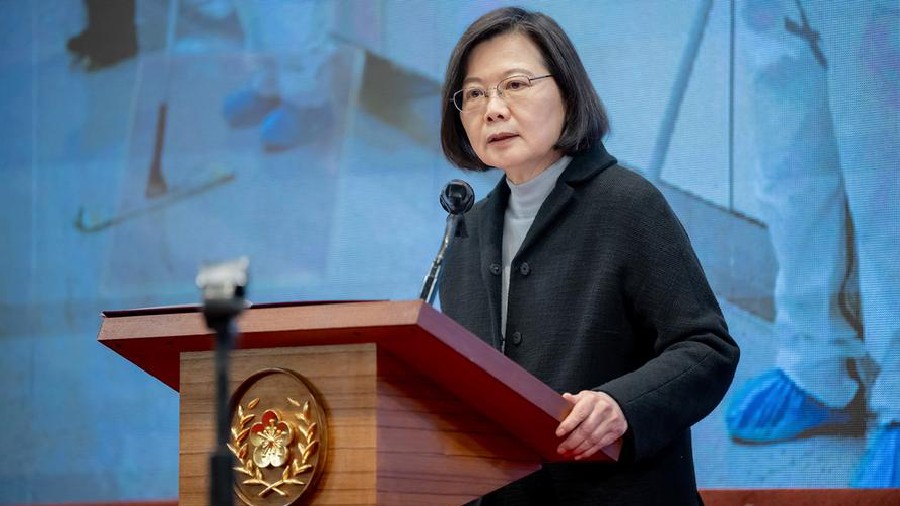China began three days of military exercises around Taiwan on Saturday in what it called a “stern warning”, after the island’s President, Tsai Ing-wen, met earlier in the week with Speaker Kevin McCarthy, in a show of Taiwanese-US solidarity.
The People’s Liberation Army said it was holding air and sea “combat readiness” patrols and drills on all four sides of Taiwan, including the strait between the island and China, in what appeared to be a concerted burst of retaliation over that meeting, in California on Wednesday.
The authorities also announced a live-fire exercise on waters near Pingtan, an island just off the Chinese coast facing Taiwan. Additionally, Taiwan’s defence ministry said that as of Saturday afternoon China had sent 71 military aircraft into the skies around the island, including 45 that crossed the median line in the Taiwan Strait, an informal boundary between the two sides. That was a jump from the usual number of such sorties.
“This is a stern warning against the collusion and provocations of the ‘Taiwanese independence’ separatist forces and external forces,” Colonel Shi Yi said in a statement announcing the sea and air drills. He was speaking on behalf of the Chinese military’s Eastern Theater Command, which oversees the region encompassing Taiwan.
China asserts that Taiwan, a democracy of 23 million people, is part of its territory and must accept eventual unification, and has threatened to use armed force if hopes for peaceful unification are entirely lost. Beijing has accused Tsai, who has rejected China’s preconditions for talks, of pursuing independence for Taiwan, and Colonel Shi said the exercises were “necessary to defend national sovereignty and territorial integrity”.
Taiwan’s Mainland Affairs Council said on Saturday that Beijing should not “misjudge the situation, escalate tensions in the Taiwan Strait and in the region and damage cross-strait relations.”
China’s display of military force had echoes of August, when the previous speaker of the US House of Representatives, Nancy Pelosi, visited Taipei and met Tsai in a show of solidarity. But China’s response this time appeared — initially, at least — to be more limited than the one after Pelosi’s visit. Last year, Beijing fired missiles into waters around Taiwan and held days of exercises simulating a blockade of the island.
“This, of course, is very clearly a response to the Tsai-McCarthy meeting,” Shu Hsiao-huang, a researcher at Taiwan’s Institute for National Defence and Security Research, a government-funded body in Taipei, said of China’s latest military activities around Taiwan.
“It looks like they will not be as intense as last year, but still they’ll be stronger than usual,” he said. “Of course, the possibility of additional actions can’t be excluded, but I’d guess that they will not go beyond this scope.”
Tsai’s meeting with McCarthy was the highest-level political reception that a Taiwanese President has received in the US since Washington shifted diplomatic recognition from Taipei to Beijing in 1979.
Since then, Taiwanese leaders have visited the US only on informal transit stops, and Tsai has made such visits in the past with relatively little reaction from China. But Beijing — angered over Taiwan’s increasingly warm relations with Washington — has become more vociferously opposed to any meetings between Tsai and foreign politicians, especially senior American figures.
“The Taiwan issue is the most important, most core, and most sensitive issue in the China-US relationship,” a commentary in the Liberation Army Daily, the main newspaper of the Chinese military, said on Saturday. It said that for Tsai and McCarthy to “meet in any form or for any excuse amounts to an upgrade in US-Taiwan contacts and is a major political provocation to China.”
New York Times News Service











